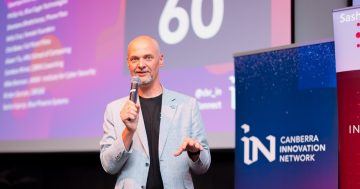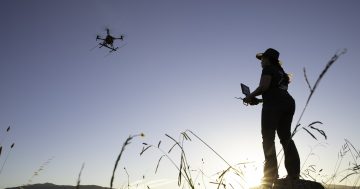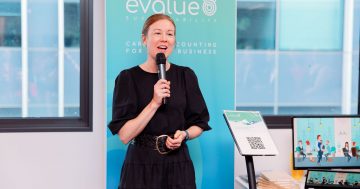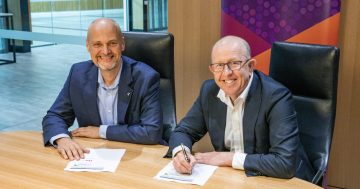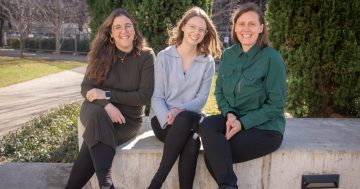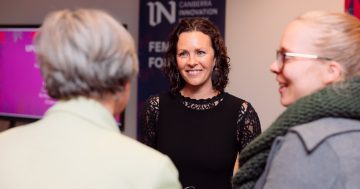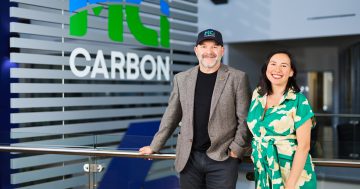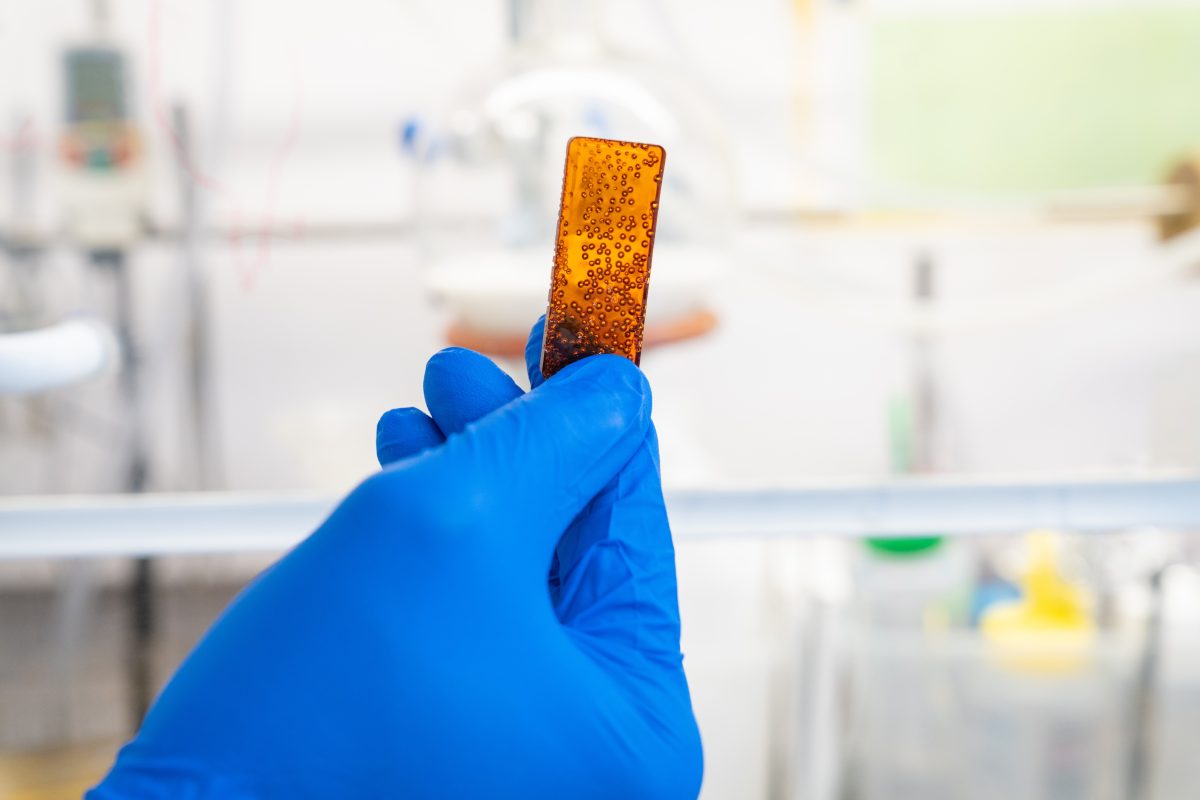
PhD students at the ANU Research School of Chemistry are innovating a new plastic with coffee grounds. Photo: Sprout Materials.
In December 2020, ANU Research School of Chemistry PhD student Ashwani Kumar set out to achieve the seemingly impossible.
He had been researching sustainable and compostable plastic manufacturing and development when his professor, Luke Connal, came to him with a question.
“He had received an email from a café owner who had asked if there was any way to convert his coffee grounds into coffee cups or other useful plastic items. Professor Connal thought it was unrealistic, and it certainly seemed that way from the outset,” he said.
“We decided to investigate.”
Along with fellow Research School of Chemistry PhD student Brett Pollard, he developed theoretical formulas and, eventually, some promising samples of sustainable, home-compostable hard and soft plastics made from a range of materials, including coffee grounds.
“We found we could incorporate coffee grounds and husks to make hard plastics more durable,” Ashwani said.
“For soft plastics, we use a different composition of sustainable materials. Basically, any sustainable ‘filler’ available in nature can be used to tune the composition of a plastic.”
It took three years, but the team eventually developed small prototypes.
However, to help humanity, research needs to be applied to commercialisation and mass manufacturing. Though Ashwani was confident it could be done with the right funding and resources, there was a problem.
“We’re researchers and chemists; we have no expertise in business. We had no idea how to translate our research into something marketable in the commercial space,” he said.
It was suggested that the team look into InnovationACT (IACT), a student entrepreneurship competition where participants learn how to build and present a high-growth, scalable business concept.
First developed by a group of ANU PhD students, including the now Deputy Vice-Chancellor (Research and Innovation) Professor Lachlan Blackhall, the competition is now open to students and staff at the Australian National University, University of Canberra, University of New South Wales Canberra, CSIRO and Canberra Institute of Technology, and administered by Canberra Innovation Network (CBRIN).
Participants receive valuable, targeted mentorship before pitching to an independent panel of judges to win prizes from a pool of $10,000 and in-kind support from CBRIN’s innovation ecosystem to help them take their project to the next level.
“We connected with many other innovators and seasoned business minds. They showed us how to focus our research onto a particular product from a commercial point of view by understanding our market,” Ashwani said.
“We learned strategies that shaped the commercialisation of our product by getting to know our customers – plastic manufacturers, hospitality business owners – their pain points, and what they really needed.”
Ashwani was one of two winners in the 2021 IACT round, claiming $5000 in prize money and invaluable insights. More recently, he applied for a CBRIN ICON grant to help get his budding business, Sprout Materials, off the ground.
The company is already attracting attention from major Canberra players, developing prototypes of portafilter and tamper handles from a plastic made using coffee grounds from ONA cafe.
“I think with the right resources, we could get off the ground within a year,” Ashwani said.
CBRIN facilitator Irene Zhen said as the longest-running entrepreneurship competition in Canberra, IACT’s track record is littered with stories like this – of an idea brought to glorious fruition to help shape the future of the nation’s capital and perhaps the world.
“I remember a couple of years ago, one of the judges was a venture capitalist, and he ended up jumping in with a funding round for one of the applicants,” she said.
“Other times, when engaging with the program, people have switched their careers over to the innovation space. That’s what happened to me in 2014 – I was actually on track to become a lawyer.
“IACT is great in that it puts these switched-on students with great ideas in front of people who want to see them succeed and who have the means to help them do so.”
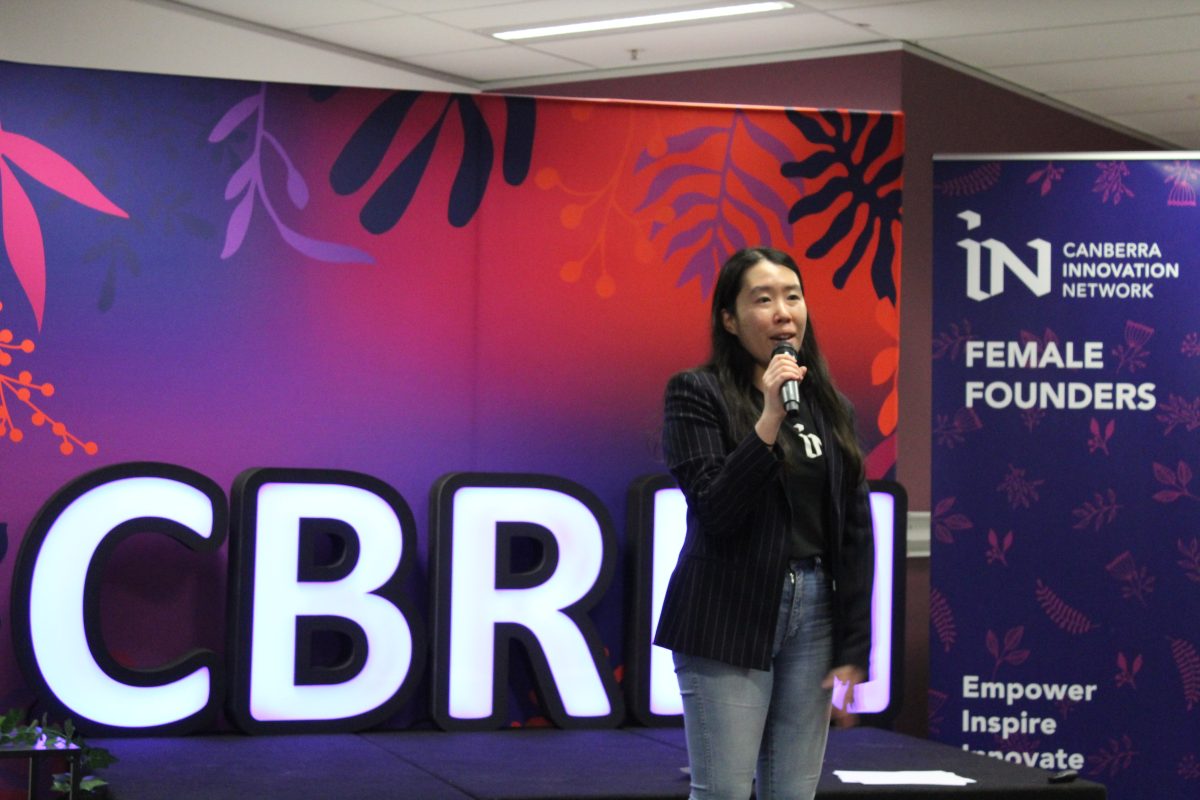
Irene Zhen switched from law to innovation after participating in InnovationACT. Photo: MUDE.
IACT participants attend four half-day workshops across two weeks, designed to help them test their ideas, develop prototypes and pitch – all skills needed to bring an idea to life.
“Innovation comes from all sorts of places – students experience it differently to how others do. This is one way to get future innovators into the pipeline to foster a healthy, thriving innovation ecosystem,” Irene says.
“I would highly recommend giving it a go – you’ve got nothing to lose and everything to gain.”
Applications are open now for the next InnovationACT round, which takes place from 5 to 15 August.












